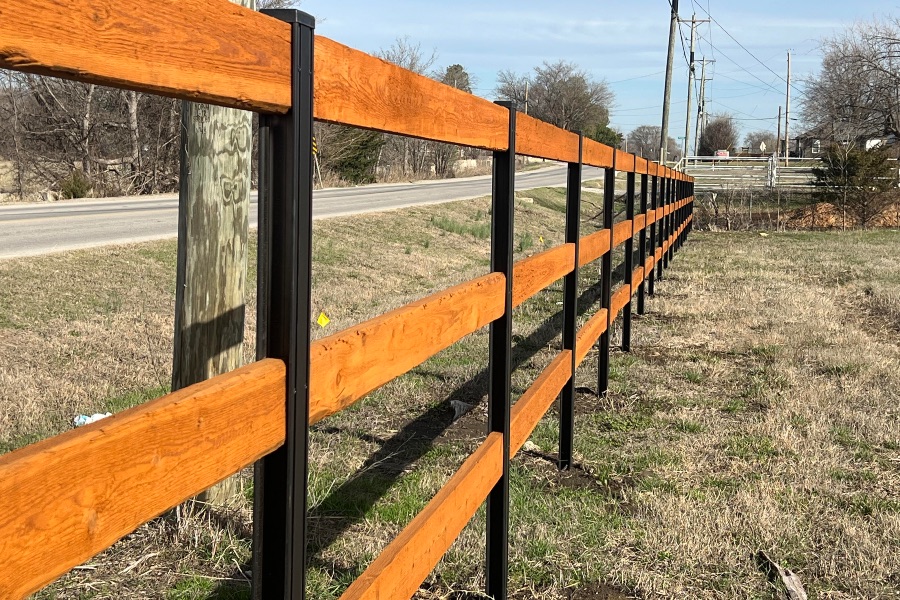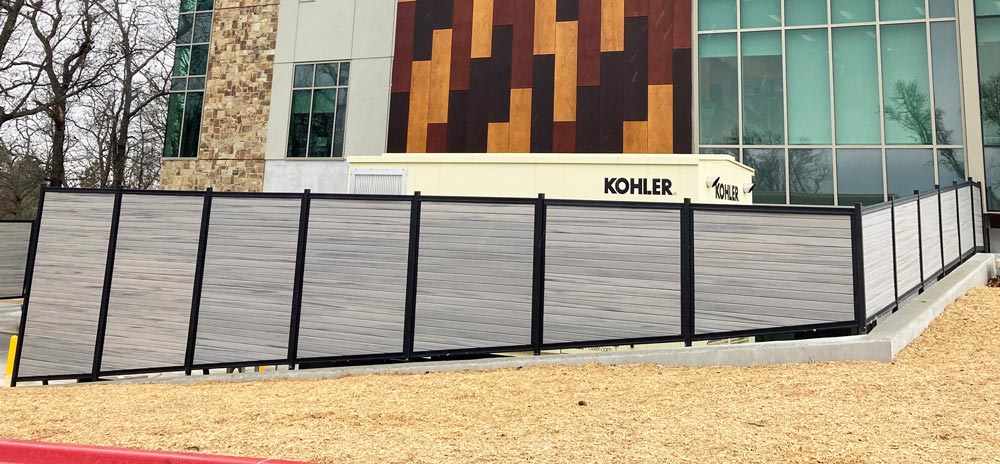All Categories
Featured
If you're considering mounting a fence around your building, recognizing the authorization needs in your location is vital. In this overview, we'll damage down the various permits you may need to mount a fencing and exactly how to ensure your task remains compliant with regional legislations.
Why Are Allows Needed for Fencing Setup? Permits are needed to make certain that the fencing you develop adheres to local building codes, zoning guidelines, and safety and security standards. They make certain that the fencing won't obstruct utilities, website traffic flow, or produce hazards for pedestrians.
![]()
Kinds Of Permits You May Demand. Structure License. A building license is the most typical need for mounting a fence. This permit guarantees that the framework you build complies with local safety codes and laws. If your fencing goes beyond a specific height (generally around 6 feet), you may require to obtain a structure permit. The local authorities will generally assess your strategies to make certain that your fence is safe and structurally sound.
Zoning License. Zoning regulations control land use in your area, and they typically control where fences can be set up, along with just how high they can be. A zoning permit makes sure that your fencing adheres to these laws. For example, your fence may require to be held up a specific distance from sidewalks or home lines. Zoning policies can differ by area, so it's important to examine the details rules that apply to your location.
Homeowners Association (HOA) Authorization. You may need approval prior to setting up a fencing if your property is component of a house owners association. HOAs usually have strict guidelines relating to the kind, design, and products utilized for fences to keep a consistent look throughout the community. The HOA may need you to send in-depth strategies or demand authorization prior to installment. Make certain you follow these standards to avoid possible fines or charges.
Specialized Permits. In some instances, you might require specialty allows based on the area of your home or the nature of your fence. If your building is in a flood area, you may require added permits to guarantee that your fencing does not block drainage or water circulation. If you plan to construct a fencing near an environmentally protected location, you may need an unique license to comply with ecological laws.
![]()
Energy Easements and Utility Business Approvals. Before setting up a fencing, you must check if your residential property has an easement. Building a fence within an easement could conflict with energy upkeep or damages underground lines.
How to Determine Which Allows You Need. Talk To Neighborhood Authorities. The first step in figuring out the permits needed is to contact your regional structure department or zoning workplace. They can offer certain information about what authorizations are required for your area. Lots of cities have on the internet sources or websites where you can check the demands and even apply for a permit online.
Seek Advice From a Professional Fencing Specialist. A local fencing contractor is usually knowledgeable about the license procedure and local laws. They can assist you browse the demands and ensure that your task is compliant. Numerous specialists likewise manage the permit application process on your behalf, saving you effort and time.
Review Your Community's HOA Guidelines. If you reside in a community controlled by an HOA, ensure to evaluate their guidelines prior to getting any type of licenses. The HOA may call for certain styles, products, or height constraints for fences within the community. Send your strategies to them for authorization prior to proceeding.
![]()
Consequences of Not Acquiring a License. Installing a fencing without the required licenses can lead to serious effects. Potential purchasers might wait to acquire a residential property with an unpermitted fence, especially if it's in offense of zoning legislations.
Final thought. Prior to mounting a fencing on your property, make certain you comprehend the neighborhood guidelines and get any necessary permits. Structure licenses, zoning authorizations, HOA authorizations, and specialty permits all play an important function in making sure that your fence is risk-free, lawful, and compliant.
Why Are Allows Needed for Fencing Setup? Permits are needed to make certain that the fencing you develop adheres to local building codes, zoning guidelines, and safety and security standards. They make certain that the fencing won't obstruct utilities, website traffic flow, or produce hazards for pedestrians.

Kinds Of Permits You May Demand. Structure License. A building license is the most typical need for mounting a fence. This permit guarantees that the framework you build complies with local safety codes and laws. If your fencing goes beyond a specific height (generally around 6 feet), you may require to obtain a structure permit. The local authorities will generally assess your strategies to make certain that your fence is safe and structurally sound.
Zoning License. Zoning regulations control land use in your area, and they typically control where fences can be set up, along with just how high they can be. A zoning permit makes sure that your fencing adheres to these laws. For example, your fence may require to be held up a specific distance from sidewalks or home lines. Zoning policies can differ by area, so it's important to examine the details rules that apply to your location.
Homeowners Association (HOA) Authorization. You may need approval prior to setting up a fencing if your property is component of a house owners association. HOAs usually have strict guidelines relating to the kind, design, and products utilized for fences to keep a consistent look throughout the community. The HOA may need you to send in-depth strategies or demand authorization prior to installment. Make certain you follow these standards to avoid possible fines or charges.
Specialized Permits. In some instances, you might require specialty allows based on the area of your home or the nature of your fence. If your building is in a flood area, you may require added permits to guarantee that your fencing does not block drainage or water circulation. If you plan to construct a fencing near an environmentally protected location, you may need an unique license to comply with ecological laws.

Energy Easements and Utility Business Approvals. Before setting up a fencing, you must check if your residential property has an easement. Building a fence within an easement could conflict with energy upkeep or damages underground lines.
How to Determine Which Allows You Need. Talk To Neighborhood Authorities. The first step in figuring out the permits needed is to contact your regional structure department or zoning workplace. They can offer certain information about what authorizations are required for your area. Lots of cities have on the internet sources or websites where you can check the demands and even apply for a permit online.
Seek Advice From a Professional Fencing Specialist. A local fencing contractor is usually knowledgeable about the license procedure and local laws. They can assist you browse the demands and ensure that your task is compliant. Numerous specialists likewise manage the permit application process on your behalf, saving you effort and time.
Review Your Community's HOA Guidelines. If you reside in a community controlled by an HOA, ensure to evaluate their guidelines prior to getting any type of licenses. The HOA may call for certain styles, products, or height constraints for fences within the community. Send your strategies to them for authorization prior to proceeding.

Consequences of Not Acquiring a License. Installing a fencing without the required licenses can lead to serious effects. Potential purchasers might wait to acquire a residential property with an unpermitted fence, especially if it's in offense of zoning legislations.
Final thought. Prior to mounting a fencing on your property, make certain you comprehend the neighborhood guidelines and get any necessary permits. Structure licenses, zoning authorizations, HOA authorizations, and specialty permits all play an important function in making sure that your fence is risk-free, lawful, and compliant.
Latest Posts
Affordable Luxury: Discover the Advantages of Laminate Floor Covering
Published Apr 20, 25
1 min read
Score Major Discounts with Montclare Auto Repair Offers - Act Fast!
Published Apr 20, 25
2 min read
Maximize Your Savings Prospective with WyHy MAX Money Market
Published Apr 20, 25
1 min read
More
Latest Posts
Affordable Luxury: Discover the Advantages of Laminate Floor Covering
Published Apr 20, 25
1 min read
Score Major Discounts with Montclare Auto Repair Offers - Act Fast!
Published Apr 20, 25
2 min read
Maximize Your Savings Prospective with WyHy MAX Money Market
Published Apr 20, 25
1 min read